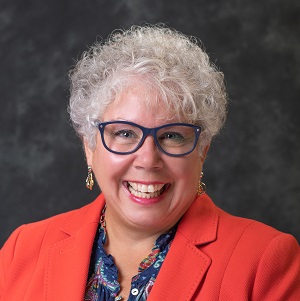
MEA
Paula Herbart, president of the Michigan Education Association.By JACK TIMOTHY HARRISON
Capital News Service
LANSING – The prospect of taxpayer-funded vouchers for private school students remains an issue, especially for rural districts, despite the repeated failure of advocates to create such a program.
Former U.S. Education Secretary Betsy DeVos of Grand Rapids has aggressively, yet unsuccessfully, championed school choice programs in Michigan, including tuition vouchers.
Despite the Democrats having a statewide legislative majority, now groups such as the Great Lakes Education Project, which DeVos founded, are pushing for more school choice options other than vouchers.
There was a push in 2000 for vouchers, which would channel dollars to families for private schools, but the state constitution prohibits the use of any public funds toward any non-public school expenses. Other efforts, most recently a scholarship fund from taxpayer credits and donated dollars, failed.
According to Paula Herbart, the Michigan Education Association’s president, vouchers are still a timely issue and they would “dramatically harm rural communities because we don’t have other options for them.”
Herbart said that if public tax dollars are spent on vouchers, much of the money would go for students who already pay to attend private schools.
“Now you have less dollars to give to the public schools because you’re taking them away and putting them into private sector entities,” Herbart said.
A 2022 report from the Michigan State University College of Education said state policymakers have ignored the needs and education conditions of rural school districts over the past two decades.
The report concluded that education policy changes, including school choice, have had a “decidedly urban emphasis.”
Doug Pratt, the union’s director of public affairs, said school choice measures, such as vouchers, would fail rural districts.
“Investing in the community’s schools is a far better policy approach than propping up sub-par alternatives,” Pratt said.
The Michigan Association of Non-Public Schools advocates on behalf of private schools to support school choice. One aspect is vouchers, according to its communications and partnership manager, Molly Koll.
Koll said vouchers would allow parents the opportunity to choose where their child attends school, regardless of location or finances.
“Both students and parents would benefit from a voucher program or any other mechanism that allows for more choice in education,” Koll said.
“In Michigan, unless you have the financial means to pay for a private education, you are locked into where you can go to school based on your ZIP code,” she said.
Koll said transportation can be a barrier for families looking to faith-based and other private schools, and vouchers could make transportation more possible.
Herbart said state funds are important because many rural districts face such problems as technology needs, limited broadband access and lower teacher salaries. Transportation costs are also high, given how far many students live from their schools.
“These people that need fleets of buses are losing dollars for whatever reason, still need those buses,” Herbart said.
Koll said the state falls short at providing “full choice to all families.”
Stymied on vouchers, school choice advocates say they are now pushing for a scholarship fund for private school pupils with tax credits for individual and business donors. They also have called for authorization of education savings accounts.
In 2021, when Republicans held a majority in the House and Senate, the Legislatures passed such a program, but Democratic Gov. Gretchen Whitmer vetoed the legislation.
And last year, DeVos failed to get two “Let MI Kids Learn” legislative initiative proposals before lawmakers to authorize such programs.
Beth DeShone, the executive director of the Great Lakes Education Project, said tax credits, private scholarships and education savings accounts would provide parents with flexibility in choosing schools.
“There are a lot of other programs that could serve the same purpose (as vouchers) to help children have access to additional funds to go to a different school or have different educational opportunities,” she said.